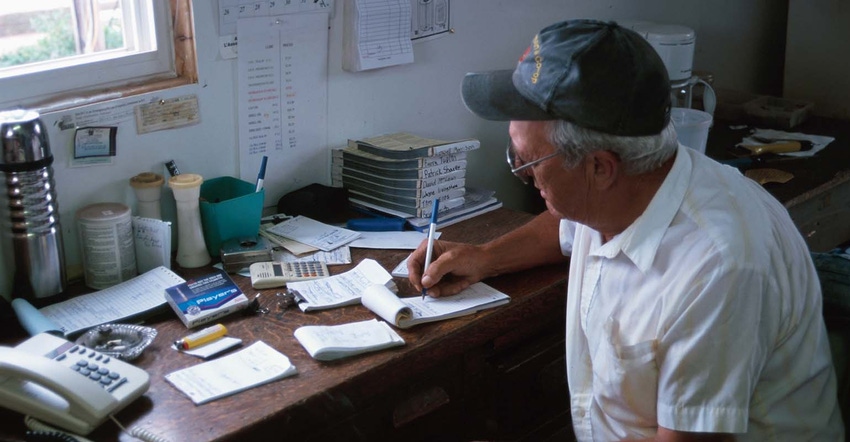
In last week’s blog, I focused on how we can take the power of habit and harness it for good – both personally as farm leaders and to help make our operations more efficient and effective.
This week, I want to bring up a related phenomenon. It’s something that can happen when habits (whether initially ours or someone else’s) turn into long-standing actions or thought patterns within a farm operation.
I believe some long-standing habits that are explained by “it’s just the way we do things around here” can potentially become stagnating or even damaging for a farm operation. Maybe it had been obvious why a particular habit or behavior was advantageous when a past generation was running the farm. But as the ag environment and operating circumstances changed over time, different behaviors and practices often start to become necessary – to achieve optimal success.
The way we do things
It can be easy to think, “Well, that’s the way Dad or Grandpa did it, so that’s how we do it.” But at times, that thinking can prevent new, valuable ideas or solutions from taking root or from even being considered.
It’s important to take into account the fact that we’re not operating in the same environment that they did. The environment we’re in might call for us to look for new strategies and ways to deal with our reality. While we don’t want to blindly follow whatever was done in the past simply because it’s what was done, we also need to take care not to go to the other extreme: throwing out everythingthat was done in the past.
The key here is to examine each practice and hold it up against the background of our current operating circumstances. Ask yourself: Is this particular practice serving our operation well? Why did previous leaders do it this particular way? What are our farm’s goals right now? Is there anything that has changed that might impact the way we may choose to do things going forward?
Getting clear
Reflecting on why we do things a certain way can be advantageous to us and our operations for several reasons. We gain insight on why– within the context and circumstances of our unique operation – past generations chose to do something a certain way. We get clear on why we choose to still do it that way today. This can strengthen our belief and passion around certain aspects of our operation, as we’re intentionally choosing to continue certain time-honored traditions.
We may also find that we run on “auto-pilot” in some areas in terms of what was habitually done in the past, or maybe we hold some fear around trying a different route. But if those practices aren’t allowing the farm to reach its potential anymore, then we might choose to look for some new possibilities.
We’re not rejecting what was done in the past or why it was done that way, but recognizing that it’s not working quite as well within our current reality – the wider environment that we must operate in.
What can you, as the farm’s leader, do to make sure new ideas or ways of doing things aren’t rejected simply because they are new? How will you test new ideas or processes to determine whether they are right for your operation? Talk with a business advisor for the farm for some ideas on how to begin implementing this.
The opinions of the author are not necessarily those of Farm Futures or Farm Progress.
About the Author(s)
You May Also Like






